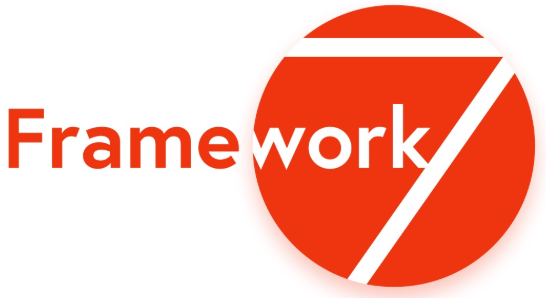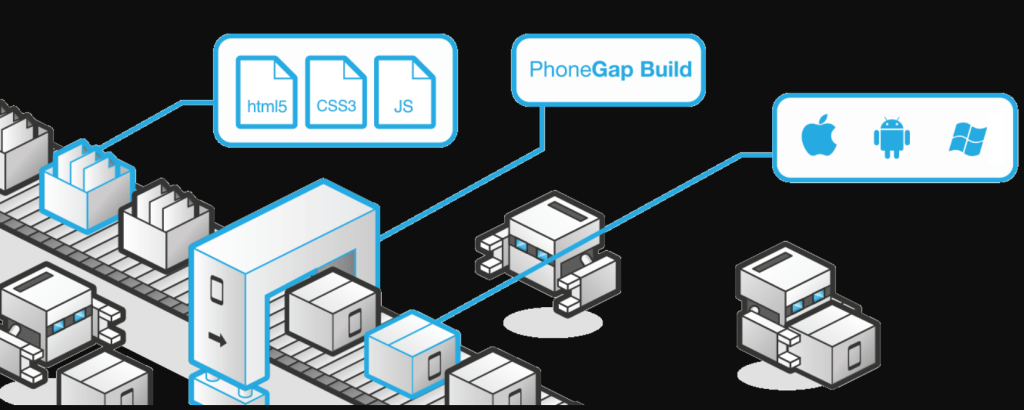Table of Content
People, especially ones that are just starting to learn mobile app development, have this question. They seem to be very confused about the concepts of native and hybrid app development.
What is Native Mobile Development?
Native Mobile Development is the process of creating mobile applications for a specific device or a platform. Native apps are made for only one platform; that could be an operating system or a range of devices, and they make use of all the features of the device.
For example, we take an app made in Android Studio. It only runs on Android and not on other devices. Similarly, you need to code on XCode to make an app executable on Apple devices.
An example would be iPhone’s Camera app, which we can’t install on Android.
What is a Web-Based Application?
Before moving on to hybrid app development, you need to understand this. In simple terms, a web-based application is an application that can run on a web browser – for example, Google Drive and Google sheets.
They can execute on every device given that the device supports the browser.
A web-based application is written with the help of HTML, CSS, and JavaScript – just like a website.
What is Hybrid App Development?
A hybrid app has both native and web-based components. Its core consists of HTML, CSS, and JavaScript, but later on, it is embedded into an application with the help of native-like components.
Some examples of Hybrid App would be Instagram and Uber. With a hybrid app, you can use the application as if it is a web browser. But still, it will be an application.
They run in WebView – which is also known as a browser embedded in an application. You need to add native plugins on the code to access native features.
Most Hybrid Applications are cross-platform applications, meaning that, in contrary to a native app that only works on a specific platform, hybrid applications can work on multiple Operating Systems.
Is There any Difference Between Hybrid App Development and Cross-Platform Applications?
You will find different answers regarding this on the internet. However, the difference lies in the meaning of their names.
A cross-platform app is an app that can run on multiple Operating Systems with a single coding. On the other hand, the term ‘hybrid app’ is used to denote an app between native and web applications. This means a hybrid app is a cross-platform app if it can run on multiple devices. On the other hand, a cross-platform app isn’t necessarily a hybrid app if it doesn’t have a web component.
Is Native or Hybrid App Better?
To answer this, we have to look at a detailed comparison between native and hybrid apps.
Reasons Why Native Apps are Better than Hybrid Apps:
Performance
Native applications have a better performance in terms of processor use and speed because native code is faster than HTML and Javascript. This is why developers prefer native app development for HD games and graphic/ processor extensive applications.
Better Use of System Components
A Native application is closer to the hardware. Thus, they make the best use of the hardware resources available.
Say you are building an application for an iPhone. With native development, you can go all out, making the best use of the high-quality camera, speakers and graphics that are available in the device.
You would have to sacrifice the performance a little bit if you wanted to run your app on other devices that don’t have as good hardware as the iPhone.
UI and Responsiveness
Doesn’t using an iPhone give you a certain kind of feeling? The same goes for Android. A native app will look very matching with the device.
Don’t think it is a basic thing – about 21% millennials have deleted a mobile application because it didn’t look good on their home screen.
Another is the responsiveness factor. A native app has been built for a specific kind and size of the screen. So, you have full control of where to place your touch elements so that it will be comfortable for the user. Also, the scroll will work well.
App Updates and Personalization
This one combines with the previous point of responsiveness. You can focus on a device with the best update tools. So, you can tend better to user reviews.
Security
With access to all the native features and components while coding, you will understand data protection better. Thus, native apps tend to be more secure than hybrid applications
Reasons Why Hybrid Apps are Better than Native Apps
Code Reusability and Ease
In the case of native applications, you would have to code separately for every platform, and both development time and costs would pile up. But in the case of a hybrid app, your app will run independently on every operating system.
A Native Experience
It isn’t to say that hybrid apps look entirely out of theme for devices. They still have what a Native UX would offer. Furthermore, you can shift the app on different platforms without confusing changes in designs.
Easier Updates
In the case of a native application, even if updates were effective, they were not efficient. Coding on different platforms would be time-consuming. For hybrid apps, you can easily update the app for every different platform at once.
Ask why it is essential; there have been numerous examples of applications performing better on Android and not on iOS and vice versa. Building a hybrid app will avoid such a situation.
Summary: Which is Better Hybrid or Native App?
Hybrid apps are easy to build, but native apps perform better and are more intact with the device metal. The decision of native or hybrid app development also depends on the coder. There are multiple ways of writing code, and a skilled person can make a hybrid app perform as good as a native app. So, you develop your coding skills and go with what you think is better.
Which Framework is the Best for Hybrid App Development?
Here are some of the best frameworks for Hybrid App Development:
React Native
![]() React Native is from Facebook, and you code your applications with React and JavaScript. There are many components and plugins, and you can easily copy the code base between iOS and Android. The platform can be a little difficult to understand at first. Their community is very big, and you can get a lot of important resources to learn. And yes, React Native is free.
React Native is from Facebook, and you code your applications with React and JavaScript. There are many components and plugins, and you can easily copy the code base between iOS and Android. The platform can be a little difficult to understand at first. Their community is very big, and you can get a lot of important resources to learn. And yes, React Native is free.
Xamarin
Xamarin is from Microsoft and has had tons of positive reviews as a hybrid app framework. Their community has more than 1.4 million coders. Also, the apps built-in Xamarin tend to give more native feel than other frameworks. The downside is that even if it is free for sole developers and startups, enterprises need to pay a lot to access its features.
Framework 7
Framework 7 will let you create amazing hybrid mobile apps with HTML, CSS, and JavaScript. Its UI looks good, and it is fun to work. Customization of the screen components and widgets is simple, and many elements in it can help you create feature-rich applications. Moreover, it is independent of any third-party library. Framework 7 doesn’t have any license costs.
Adobe PhoneGap
Adobe PhoneGap comes with ‘Build’- a cloud service that can compile applications without installing an SDK. It is a simple hybrid app builder to learn and can run on Windows, iPhone, and Android. Also, a simple knowledge of HTML, CSS, and Javascript will help you build an app. Furthermore, it is open-source, and the community is very big. So, you can find numerous tutorials about it on the internet.
Ionic
Ionic was first built as an Angular based system (it is a platform) to kick the older jQuery mobile frameworks. Understanding the UI components is easy, and the design is fine. Solo developers can get Ionic free for personal use, but there may be some missing features from the Pro version, which costs money. All in all, it is an excellent framework that has a big family of coders.
Flutter
The dart-based Flutter from Google is a free open source platform for building apps. The interface is easy, there are multiple assistive widgets, and it can stand side by side with Xamarin when talking about the native feel of the apps. Also, features like hot reloading speed up the development time.
Flutter was initially released in May 2017, but it has already made the list of the 50 most active repositories on GitHub. That alone shows its popularity and the preference of many coders around the world.
Conclusion: Many frameworks exist for hybrid app development. The most important thing is to get a sense of direction – you have to have a good idea and know what you are doing. Because after all, it is the code that matters.
Also, you need to have a good idea of what development will be the best for you. Build on a native app framework if you want the best quality, but go for hybrid app development if you are looking for an easier and economical way.






